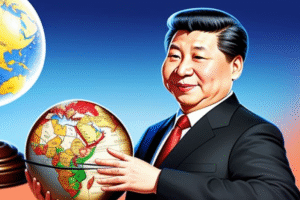$SPX $DOWI #StockMarket #Finance #Investing #TradeTensions #Economy #SP500 #Nasdaq #DowJones #Futures #MarketTrends
How Are Rising Trade Tensions Affecting Your Stock Portfolio?
In the latest stocks news, the impact of escalating trade tensions is becoming increasingly visible across major market indexes. On a recent trading day, the S&P 500 Index closed down by 0.27%, while the Dow Jones Industrials Index saw a larger decline of 0.66%. The Nasdaq 100 Index fared slightly better, only dipping by 0.17%. Adding to the bearish tone, September E-mini S&P futures fell by 0.33%.
Market Reactions to Global Trade Issues
As nations tighten their trade policies, investors are witnessing fluctuations in market dynamics. These changes are crucial for anyone involved in the stock markets, as they influence both short-term trading strategies and long-term investment decisions. Understanding these shifts can help investors better manage their portfolios during uncertain times.
Impact on Different Sectors
Different sectors react uniquely to trade tensions. Typically, industries reliant on international trade, such as manufacturing and technology, might experience heightened volatility. For instance, companies in these sectors could face challenges like increased costs and disrupted supply chains, potentially affecting their stock performance.
Strategies for Navigating Market Turbulence
In times of market turbulence, financial experts often recommend diversification as a key strategy. By spreading investments across various sectors and asset classes, investors can potentially reduce risk. Additionally, keeping an eye on futures such as the September E-mini Nasdaq futures, which also showed a decline recently, might provide insights into market expectations and help in adjusting strategies accordingly.
Long-Term Implications for Investors
While short-term market dips due to trade tensions can be concerning, they also may present buying opportunities for the astute investor. However, it’s crucial to consider the long-term implications of ongoing trade disputes on global economic stability and growth. Investors should stay informed through reliable financial insights and continue monitoring the market’s response to geopolitical events.
For more detailed analyses and updates on how trade tensions are influencing the stock markets, consider visiting our dedicated stock news section. You can find it here: Stock Market News.
Conclusion
As the global landscape of trade continues to evolve, the ripple effects on stock markets are evident. By staying informed and strategically managing investments, you can navigate through these turbulent times more effectively. Remember, in the world of investing, being forewarned is forearmed.











Comments are closed.